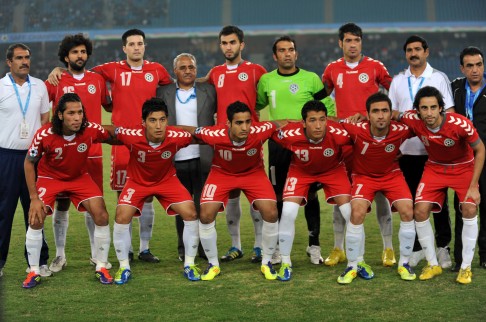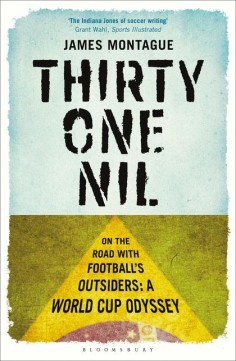Book review: Thirty-one Nil - On the Road with Football's Outsiders: a World Cup Odyssey, by James Montague
If you are looking for a timely antidote to the blanket coverage of lucratively paid footballers competing in the World Cup in Brazil starting next Thursday, it's time to grab a copy of Thirty-One Nil, a gripping tale of some of the many underdogs who dreamed, however briefly, of playing alongside the likes of Ronaldo and Messi.
If you are looking for a timely antidote to the blanket coverage of lucratively paid footballers competing in the World Cup in Brazil starting next Thursday, it's time to grab a copy of , a gripping tale of some of the many underdogs who dreamed, however briefly, of playing alongside the likes of Ronaldo and Messi.
Author James Montague travelled the globe over the past three years, spending time with the part-time players, journeyman coaches and passionate fans of some of the lowest-ranked national teams on the planet as they try to do the improbable and qualify for this year's World Cup.
The book focuses on teams such as Haiti, American Samoa, Montserrat and Afghanistan, representing countries that few would be able to find on a map, war-torn nations or those with a population barely large enough to fill Brazil's largest stadiums.
At its core, Montague's book is a tale of dreaming despite the odds, and its strength lies in the many compelling individuals featured in its pages.

The book takes its title from the humiliating defeat of American Samoa by Australia in 2001. American Samoa, population 55,000, feature heavily in the early part of the book, with the team's goalkeeper, Nicky Salapu, trying to overcome the psychological damage of conceding 31 goals in a single game. "I want my son to grow up and don't want kids chasing him around saying your dad lost 31-0," he tells the author at one point.
American Samoa soon crash out. So do Haiti, who, before their first home game, have to clear their stadium of refugees who are still living inside after the 2010 earthquake that devastated the island nation; the finishing touches are still being put in place just 24 hours before kick off.
In fact, it seems as if every national team in the book has its own issues to overcome. The Palestinian team struggle even to have team practices involving players from both the West Bank and Gaza, and never know if their full squad will successfully make it outside the country for away games. Meanwhile, teams from Croatia and Serbia have to navigate still-simmering tension as they get ready to face each other in the first competitive game between them since Yugoslavia broke up.
The World Cup journey for the majority of these underdog nations ends as expected, with the underdogs struggling against the odds, and failing.
In countries such as Egypt, where the passion of the World Cup campaign had briefly seemed to unite heavily divided factions of the country, the campaign ends in ignominy, as police have to wade into the stands during the final game to separate not the opposing supporters but fans of the Egyptian team now back to fighting among themselves.
It is a sad realisation that these brief periods of unity and hope are usually just a momentary diversion from the daily struggles for many fans.
Over the past three years most of the world has seen their World Cup dreams cut short, their countries crashing out, sometimes bravely, sometimes with barely a whimper. It is nice to have a chance to hear their stories.

